Join the Schutz family in their journey with Fragile X syndrome. Discover Wally’s inspiring progress, the impact of clinical research, and how donations to FRAXA fuel hope for breakthroughs to support families affected by Fragile X.
Read moreCBD
Recruiting: Harmony Biosciences Phase 3 Clinical Trial (RECONNECT) with At-Home Option
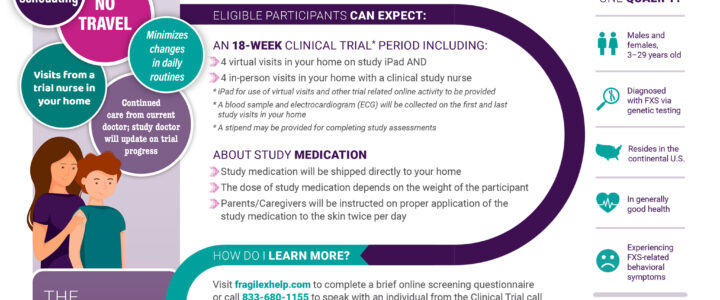
Harmony Biosciences is now recruiting for the RECONNECT Phase 3 clinical trial of ZYN002, a potential treatment for Fragile X syndrome. The trial offers an at-home participation option, making it accessible for patients across the US, Australia, and the UK. Join us in this groundbreaking study and contribute to the future of Fragile X syndrome treatment.
Read moreThe Endocannabinoid System and Fragile X Syndrome

Explore groundbreaking research on the potential of Cannabidiol (CBD) in modulating the endocannabinoid system for Fragile X syndrome therapy. Discover how CBD could change the natural course of Fragile X.
Read moreTargeting Cognitive Function in Fragile X Syndrome
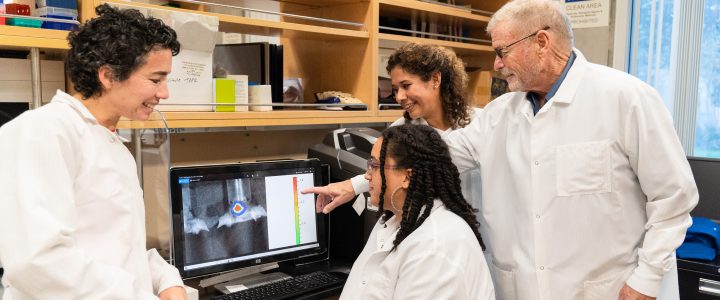
It has long been assumed that the differences between males and females with Fragile X were simply a matter of degree, with males being more severely affected. But gender differences may be far reaching. This team is working to understand imbalances in how the brain’s neurons transmit signals, with a focus on how differently males and females learn and experience anxiety. They are studying two neuronal pathways which are promising targets for treatment.
Read moreClinical Trial Results Reported for Phase 3 CONNECT-FX Study of Zygel™
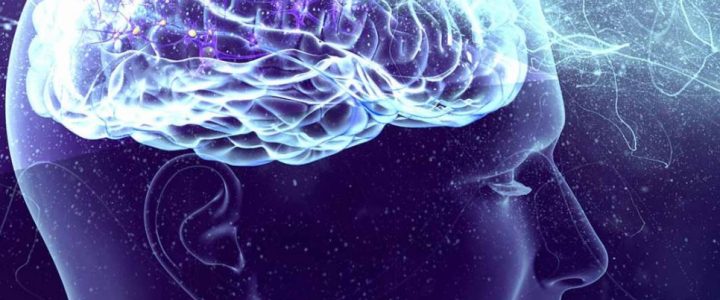
Results have just been published from Zynerba Pharmaceuticals’s phase 3 clinical trial of Zygel™ in the Journal of Neurodevelopmental Disorders. In this trial, 212 children and adolescents aged 3 to 17 years were given Zygel or placebo for 12 weeks.
Read moreTranscriptional Signatures Sensitive to Cognition-Improving Pharmacological Treatments in Fragile X Syndrome

The Fragile X field needs biomarkers to accurately measure the effects of potential treatments in both Fragile X mice and in humans. Dr. Ozaita and his team have found molecular features in the brain that can serve as an objective signature for the syndrome. They will use this tool to test cannabidiol and two other drugs in mice.
Read moreCannabinoids as a Treatment for Fragile X Syndrome

Many people with Fragile X syndrome are hyper-sensitive to sights and sounds, and Electroencephalography (EEG) studies show that there are abnormalities in brain circuits. EEG studies show similar changes in Fragile X mice. So the team will use EEG tests in mice to find which drugs best reduce hypersensitivity. They can then easily move on to human EEG-based clinical trials. What they learn will tell us much more about why people with Fragile X are hypersensitive – and which drugs could best help them.
Read more2021 Fragile X Research Grants Funded by FRAXA Research Foundation

Each year, FRAXA funds a diverse portfolio of research. Our FRAXA Fellowships are seed funding for the future, the feedstock for the Fragile X treatment development pathway. While we are looking to promote as many promising new approaches as possible, prominent themes emerge each year, as scientists around the world tackle previously neglected areas.
Read moreLink Between Lipid Profile, eCBome System and Gut Microbiome in Fragile X Syndrome

Why does obesity challenge so many people with Fragile X? Dr. Caku’s team thinks changes in the gut are the culprit. This team has found that Fragile X syndrome causes changes in the tiny organisms that live in our gut. They believe that these abnormalities cause changes in the brain which impair learning and behavior.
Read morePivotal Phase 3 Trial of Zygel in Severe Fragile X Possible This Year

Zynerba Pharmaceuticals reported receiving advice from the U.S. Food and Drug Administration (FDA) on the design of an upcoming Phase 3 clinical trial meant to confirm previous trial findings supporting Zygel as a cannabidiol treatment in a specific subset of Fragile X syndrome patients. The new trial, called RECONNECT, is expected to launch before October, and will mainly enroll children and adolescents with a complete (100%) methylation of FMR1, the gene mutated in Fragile X.
Read morePharmacotherapeutic Effects of Cannabidiol (CBD) in Fragile X syndrome (FXS) and Autism Spectrum disorder (ASD)

This study will test CBD (cannabidiol) treatment in male and female Fragile X mice to learn how and why it works and whether gender affects responses to CDB treatment. Along with clinical trials, this study will help us to understand and optimize the potential of CBD as a behavior-regulating treatment for Fragile X.
Read moreCellular-Specific Therapeutic Targeting of Inhibitory Circuits in Fragile X Syndrome
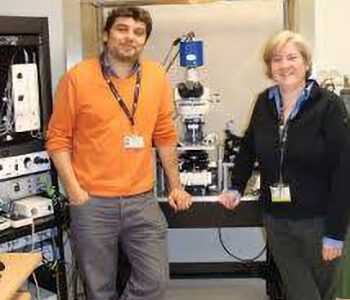
Studies have shown that the function of inhibitory networks is disturbed in Fragile X. This abnormality is not well understood but appears to be secondary to abnormalities in metabotropic glutamate and endocannabinoid systems. With a $90,000 grant from FRAXA, Dr. Molly Huntsman’s team examined how these networks interact and how inhibitory deficits can best be remedied.
Read moreZygel May Improve Behavior in Children With Severe Fragile X, Trial Data Suggest

Zynerba presented clinical trial results for Zygel at a recent neurology conference. Zygel, an experimental cannabidiol (CBD) gel, may reduce behavioral abnormalities in children with Fragile X syndrome who have more severe disease.
Read moreFRAXA Biotech Games, the Beginning of Something Great

On September 20, 2018, FRAXA Research Foundation held the First Annual FRAXA Biotech Games™. The event was a “friendly” competition between greater Boston biotech companies and affiliated industry partners and vendors in a series of fun backyard lawn games. 42 teams of 4 players each played cornhole, KanJam, ladder golf and bucketball. Our goal was to establish an annual event in Cambridge, MA, that would unite the biotech community for an afternoon of fun competition, and raise money for biomedical research. We look forward to the upcoming Biotech Games!
Read moreDrug Duo Delivers Brain, Behavioral Benefits for Fragile X Syndrome
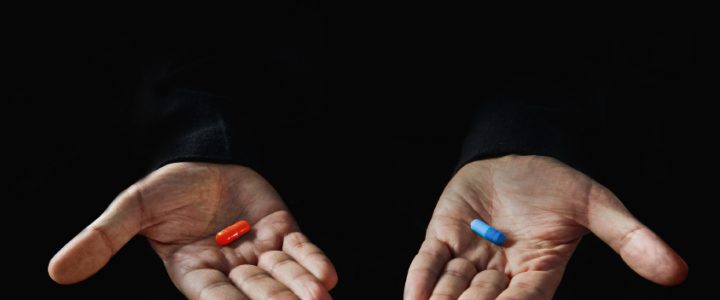
Administering a cholesterol drug alongside an antibiotic eases atypical behavior and restores the signaling balance in the brains of people with fragile X syndrome.
Read moreUnderstanding and Reversing Hypersensitivity to Sounds in Fragile X Syndrome

With a $90,000 grant from FRAXA Research Foundation over 2018-2019, Drs. Devin Binder, Iryna Ethell, and Patricia Pirbhoy at the University of California at Riverside aim to understand – and reverse – hypersensitivity to sound in Fragile X syndrome.
Read moreAchieving Predictability: Developing Biomarkers for Fragile X Patients

New York University scientists make progress developing biomarker signatures and cataloging the types of Fragile X patients who will most likely benefit from new therapies. Take a closer look at your son or daughter with Fragile X syndrome. If you meet another child with Fragile X syndrome, chances are he/she may seem totally different to you, yet everyone is united under a FXS diagnosis. Discovering the biological reasons behind these differences is key to identifying which children will respond to what treatment. But how do you find the ‘prediction formula’? New York University scientists may soon know.
Read moreThe Endocannabinoid System in a Mouse Model of Fragile X Syndrome

With a $128,500 grant over 2011-2013 from FRAXA Research Foundation, Drs. Bradley Alger and Ai-Hui Tang at the University of Maryland researched endocannabinoid pathways in Fragile X.
Read moreTargeting the Endocannabinoid System in Adult Fragile X Mice

With a $90,000 grant from the FRAXA Research Foundation from 2013-2014, Dr. Andres Ozaita led a team to test rimonabant’s ability to blockade the CB1 receptor. Blocking CB1 has shown potential to reverse most symptoms of disease in mice bred to mimic Fragile X syndrome.
Read moreEndocannabinoid Mediated Synaptic Plasticity in Fragile X Mice

With a $90,000 grant from FRAXA Research Foundation over two years, Drs. Olivier Manzoni and Daniela Neuhofer researched the relationship between Fragile X syndrome and the areas of the brain that are involved in reward processing, regulation of emotional behavior and emotional memory as well as attention, planning and working memory.
Read more
